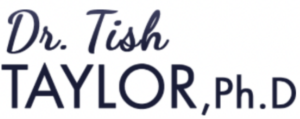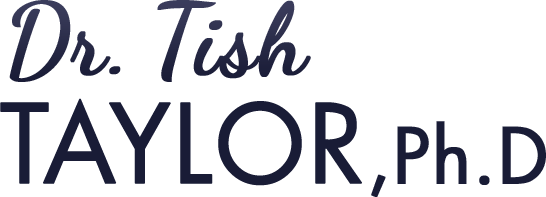
Learning Disability Evaluations in Shawnee: Dyslexia, ADHD, and More
Learning Disability Evaluations in Shawnee: Dyslexia, ADHD, and More — Does this story sound familiar? I received some concerning news today. My 10-year-old daughter, Sarah, is suspected of having dyslexia and could need learning disability evaluations in Shawnee. When her teacher mentioned struggles in class, my spouse and I sensed something amiss. I’ll admit, we’re anxious. Will she lag behind her peers academically? Could this affect her chances of getting into college after high school? As a parent, worries consume me, despite the psychologist’s assurance that Sarah can have a typical life. I need to calm down and take it one step at a time.
Learning Disability Evaluations in Shawnee with Dr. Tish
Finding out that your child has a learning disorder (disability) or other problem can be very frightening. The good news is that, with the correct intervention, dyslexia can be greatly improved as a brain-based language processing disorder. In this blog, we will discuss dyslexia and learning disability evaluations in Shawnee. We’ll cover topics like finding the right treatment and understanding what other conditions may co-occur with it.
Different kinds of learning disorders can impair a child’s capacity to concentrate, learn, and be themselves. As a top child psychologist in Shawnee, Dr. Tish can provide you and your child with information about the disorder and strategies for managing it.

What is it?
A learning disorder called dyslexia impairs a child’s capacity for accurate and fluent reading. A child may also struggle with math, spelling, writing, reading comprehension, and other subjects in addition to this. Dyslexia is persistent and is the most frequently identified learning disability among children. Experts estimate that between 5% and 10% of children have the condition, though the precise number is difficult to pinpoint.
While dyslexia is not typically outgrown, reading abilities can be improved with effective strategies and techniques.
Children with dyslexia typically struggle with phonological awareness, which is the ability to hear and manipulate sounds in words. Additionally, children who struggle to distinguish and utilize the various sounds in words are far more likely to struggle through the reading process. Children with dyslexia also struggle with phonological memory, which is the ability to recall spoken words and phrases long enough to repeat them accurately, and rapid naming, which is the ability to name letters and objects quickly.
Parents of children with dyslexia should be aware that their child’s tendency to switch or write letters backward is likely not due to a visual impairment. While intelligence is typically not the issue, addressing intellectual strengths and weaknesses within a learning disability evaluation in Shawnee can help assess all factors interfering with learning, including Dyslexia. A large number of children with Dyslexia have successful school careers, jobs, and professions. Knowing that with more effective intervention and treatment, Dyslexia can be helped.
The Way It’s Handled
The term “multisensory structured language education” is often used to describe the most effective programs for treating dyslexia. They provide a logical and sequential path through the key components of language development, reading, spelling, and even vocabulary for kids who require it. They are grounded in research. When used appropriately, they let adults and kids with dyslexia learn at their own pace. One such method is Orton-Gillingham (OG), which is sequential and flexible.
Given that dyslexia often entails language difficulties, phonological awareness—or teaching kids to focus on the individual sounds that comprise words—is frequently the first step in intervention. After that, they are instructed to “play” with sounds to create new words. This is frequently accomplished by representing sounds instead of letters with colored blocks.
Another crucial skill that children are taught to handle is phonics, which teaches them the connection between sounds and the written letters we use to represent them. This pair of abilities aids children in decoding, or sounding out, and pronouncing new words correctly. Psychologists, reading specialists, speech-language pathologists, and teachers with specialized training are among the professionals who specialize in this kind of therapy.
Children with dyslexia can receive therapy in school or privately, but many parents discover that they must be strong advocates for their child’s education when considering school services and private services.

Situations that Accompany Dyslexia
An estimated 40% of children who are dyslexic also suffer from attention deficit hyperactivity disorder (ADHD) and need a Shawnee ADHD evaluation. Nonetheless, some children who fidget in class might just be expressing their frustration with their dyslexia—a condition that is sometimes mistaken for ADHD.
The condition known as auditory processing disorder (APD) affects a child’s capacity to discriminate between sounds. Children usually struggle with distinguishing between letter sounds and pronouncing unfamiliar words. There are many other conditions that are associated. To find out if your child has any of the conditions below, schedule a learning disability evaluation in Shawnee.
Dyscalculia: Children who suffer from this disorder struggle with various aspects of math, which may include number sense, math computation, and math reasoning.
Dysgraphia: This is a condition that affects writing abilities, which may include letter formation, paragraph writing, and even spelling. Children may also struggle to organize their thoughts when writing.
Executive Functioning: This encompasses problems with organizing oneself, thinking flexibly, and working memory.
Slow Processing: This can make reading difficult. Children may take longer to assimilate, comprehend, and remember information.
Supporting Your Youngster
It’s normal to be concerned about your child’s future after receiving a diagnosis of a learning disorder, but there is typically a great deal of hope for a successful future. Dr. Tish Taylor, Ph.D, understands how difficult it can be to deal with behavioral and learning issues, but she also knows that things can look up in the future if parents are involved and provide effective treatment. To find out more about our services and how they can benefit you or your child, get in touch with us right now.
Need to hear from someone who has worked with Dr. Tish?
This Google 5-Star review says it all!
“Dr. Taylor has made a tremendous amount of impact on our family. She has a thoughtful approach and endless techniques to help children learn how to cope and navigate through their thoughts and feelings. She has given encouragement and peace of mind. She is truly a lifesaver.”
-Amy W

If you are struggling to find the right support for your child, contact me, Dr. Tish Taylor, Ph.D. I am a licensed child psychologist who specializes in Shawnee ADHD testing. My experience working in and with schools makes me a valuable resource for parents. I have a wide range of experience with diagnoses, including ADHD, dyslexia, executive functioning deficits, anxiety, mood, and behavior problems. I also do autism assessment in Shawnee if that is where your concerns lie.
I utilize the latest research to create intervention methods to give your child and your family the support they need, including learning disability evaluations in Shawnee.
You can reach me at (913) 738-4177 or visit my website to learn more about the services I offer. You can also get in touch with me by filling out this contact form. I look forward to assisting you.
You can also receive guidance through my books focused on Fostering Connection and Parenting with ADHD. Click here to find out more about these publications and how they can be a major benefit to you and your child. I also offer webinars focused on developing an intervention plan and how to get through to a child that struggles with listening. You can learn more about these two helpful classes by clicking here.

